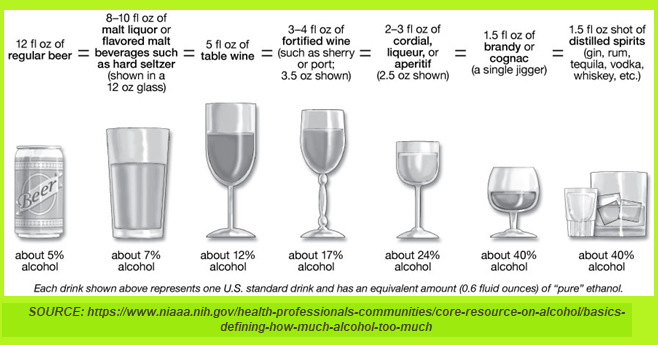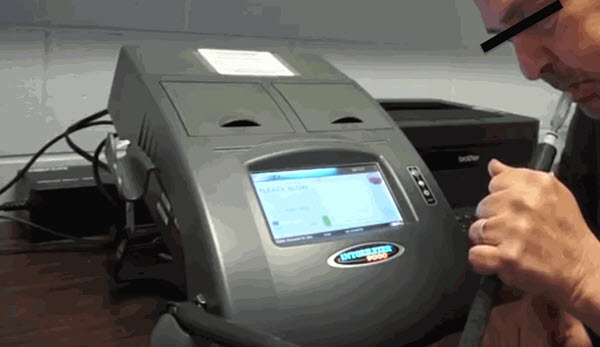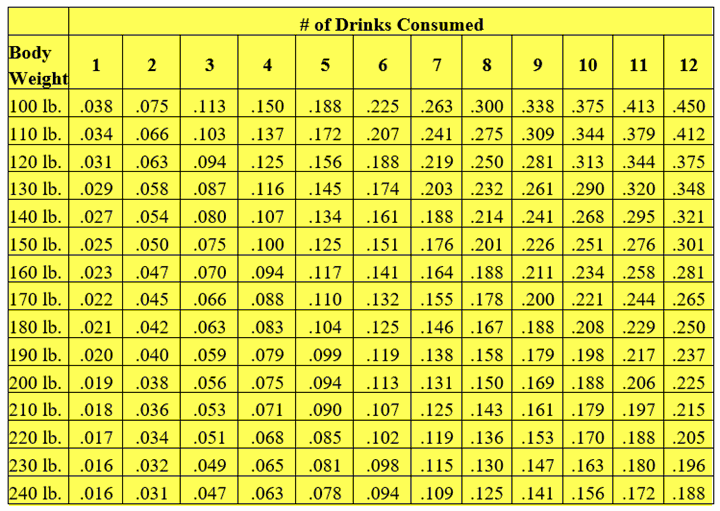By: Atlanta DUI Attorney William C. Head, DUI legal book co-author of over a dozen law books on drunk driving
Calculating BAC
Our starting point for this article is that alcohol is a drug. As with many other drugs that a person may be prescribed, or simply take to get high, the substance can change the perception and the mental acuity of the person ingesting the drug.
Alcohol has been extensively studied. Learn how to calculate your blood alcohol level before driving. Research has shown the harmful effects of alcohol for over 50 years.
All 50 states have set the minimum BAC legal limit at 0.08% BAC for drivers over 21, and from 0.00% to 0.02% BAC for underage drivers, and 0.04% BAC for CDL drivers (commercial motor vehicle operators).
If you are charged with DUI due to a high BAC, hire a skilled attorney and don’t plead guilty. Call a top DUI lawyer in your area right now at 1-888-839-4384 anytime day or night. Damaging chemical evidence can be excluded from your trial!
Why Owning an Alcohol Calculator is Wise
Other nations have more aggressively legislated their national laws regarding drinking and driving. France (for example) mandates that all motor vehicles have a breath alcohol calculator in the vehicle so every driver can check his or her amount of alcohol before starting the vehicle.
The BAC calculator determines your legal blood alcohol content based on your weight or number of drinks. These online sources have interactive interfaces, to get more precise calculations.
Nations like Norway have imposed punitive laws that will assess a fine equal to 10% of your annual salary for being convicted of drunk driving. And this is a punishment in addition to jail time.
Different types of alcohol have widely different alcohol content, per ounce of their respective beverages. See the chart set forth below.
Here is how to estimate your blood alcohol content using our drunk calculator:
- Count the number of “standard” drinks consumed. One drink = 1 ounce of 100-proof liquor, one 5 ounce glass of table wine, or one 12 ounce bottle of regular beer.
- Using the chart below, find where “# of Drinks Consumed” and “Body Weight” intersect. This is your estimated BAC.
- Subtract from this number the percent of alcohol “burned up” during the time elapsed since your first drink. This “burn up” rate is .015% per hour. (Example: 180 lb. man – 8 drinks in 4 hours / .167% minus (.015×4) = .107 %

Hiring Top-Rated DWI-DUI Lawyers is Your Best Option
Our drunk driving lawyers in various states have been carefully selected for this Directory. Each (in her or his location) is known for being a highly respected and experienced legal professional in this field of law practice.
Our legal professionals will file suppression motions before the trial to challenge the pullover, a breath alcohol test, or blood extraction. Additionally, they vigorously defend your DUI charges by identifying and presenting a strong defense strategy. They then vigorously defend your DUI charges by identifying and presenting a strong defense strategy.

Blood Alcohol Content (BAC) Chart
The average elimination charts shown below may not apply to everyone, so it’s important to drink responsibly. This chart (for hypothetical consumption of ethanol) shows how high a person’s BAC level can reach, before the slow elimination process can take place, basically eliminating 0.015 to a 0.018 grams percent per hour, after drinking ends.
Caution: About 50% of the people who reach a BAC of 0.35 grams percent or higher can die from alcohol poisoning. The yellow chart below gives a “ballpark” estimate of how high your BAC will go based on the number of “standard” alcoholic beverages.

Blood Alcohol Content Calculator
The amount of alcohol in your blood is called your BAC. The BAC calculator below shows your legal BAC by weight, or your estimated blood alcohol level by the number of standard alcohol drinks consumed in relation to your body weight. It will show you your BAC after one beer.
See below how to calculate BAC, or your blood alcohol content level, before you drive. All 50 states have set the minimum BAC legal limit at 0.08% BAC for drivers over 21, and from 0.00% to 0.02% BAC for underage drivers, and 0.04% BAC for CDL drivers (commercial motor vehicle operators).
Every drinking driver in America should spend 15 minutes to LEARN what his or her BAC calculator “value” would be after a couple of standard drinks. The way your body processes alcohol will be different for each person. This depends on various factors including gender, weight, and the amount of time spent drinking.
A lot of drivers are stopped at DUI checkpoints and given a breathalyzer test. If you “blow” over the legal limit, which is 0.08% in all 50 states, the officer will usually ask you to perform field sobriety tests. These tests are VOLUNTARY! Nothing good can come from taking them.
If you are eventually arrested for drunken driving, the police also may order a DUI blood test before you are taken to jail. Therefore, how to calculate BAC is important if you are unsure about your ability to drive safely.
Further Reading
If you’d like to learn more about blood alcohol content and how BAC can be used against you, read some of our helpful and informative articles on BAC below:


